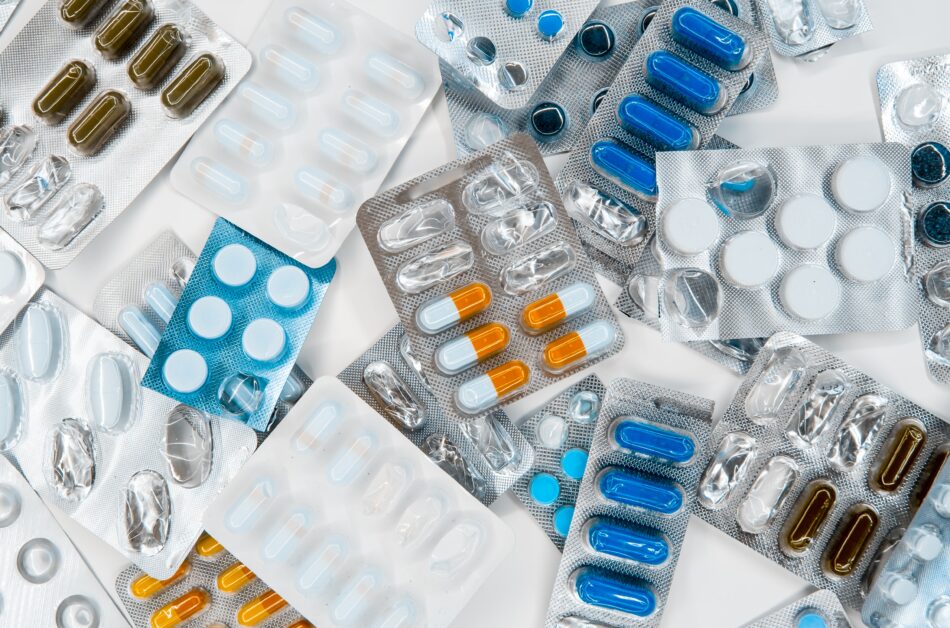Prepare Your Business for New Food Waste Legislation in the UK
From 31 March 2025, most UK businesses must arrange separate food waste collections. Learn and prepare for the new food waste legislation in the UK.

Medicine waste is a major problem in the UK. Every healthcare setting must have policies in place for the strict and safe disposal of old, expired, and unused medicines to protect human health and the environment. It’s also important that individuals understand how to dispose of medicines in their home properly.
That’s why we’ve put together this guide that explains how to dispose of and recycle medicine. Discover how to dispose of medicines in the UK after they’ve expired or are simply unused with our answers to some of your common questions about medicine disposal and recycling.
Hippocrates is generally considered the father of modern medicine due to more than 70 formulas that were found in one of his books from around 2,400 years ago. However, the first medication that was created that’s still used today is probably aspirin. The ancient Egyptians and Sumerians created this.
Medicines are made from all sorts of compounds that can either be created from a mixture of chemicals in laboratories or taken from nature (items such as leaves, bark, and plants). Some types of medicine (such as penicillin) are made from the by-products of organisms that can include fungi.
Lots of research goes into creating medicines, to ensure they’re safe and effective. Medicines are made in many ways – often by mixing chemicals together, causing reactions, boiling and cooling down to leave a powdery or crystalline substance. They’re also made naturally by isolating the pharmaceutical ingredient from a plant or other natural source.
Any waste containing medicines that are expired, unused, damaged, contaminated, or not needed, class as pharmaceutical waste. Medicines can also be either a type of hazardous waste or non-hazardous waste, depending on their ingredients and intended use. Due to the nature of medicine waste, it must be disposed of safely.
There are several ways you can dispose of medicinal waste in your home. To dispose of medicines, you can:
If you return unwanted medicines to the pharmacy where you purchased them, then it may be recycled. It’s unlikely the medicine itself will be reused – whether it’s been opened or not – but its packaging may be recycled alongside types of paper and cardboard recycling. This includes the paper inserts.
The medicine itself is normally incinerated or destroyed by another method. This is for safety reasons and due to the ingredients that make up most medicines not really being recyclable.
No, you should not flush any medicines down the toilet for various reasons. Firstly, they could get stuck and cause a blockage in pipes. They can also leach into the water and add to water pollution levels. Plus, they could wash up and be found by children or other people – putting them at risk of harm.
One of the most common problems with medicinal waste is the cost it places on organisations such as the NHS. Millions of pounds are wasted each year on unusable prescription costs, which could be better spent in areas of the NHS that are struggling.
However, medicine waste also causes massive problems for the environment. The packaging used to store many medicines is often made out of plastic. This material alone is one of the most dangerous materials for the environment because the packaging may take over a lifetime to decompose.
An alternative to wasting medical packaging is to recycle it. This is because some of the plastic involved in the packaging can be recycled – either through chemical, molecular, or mechanical means. The cardboard that’s used to box up different types of medicine can be widely recycled, as can the paper that the instructions for each drug are written on.
A few key facts about medicine waste are that:
To recycle or dispose of expired medicines for free you can normally take them to your local pharmacy. Here they should be able to dispose of not just the drug safely, but also the packaging by recycling it. At home you can also recycle any medicine packaging in your domestic recycling bins – such as the paper and cardboard box they come in.
Find out more about other rubbish streams.
Get a fast FREE quote for your medicine waste
From 31 March 2025, most UK businesses must arrange separate food waste collections. Learn and prepare for the new food waste legislation in the UK.
The study participants included business owners and company employees, revealing unexpected findings about corporate environmental practices.